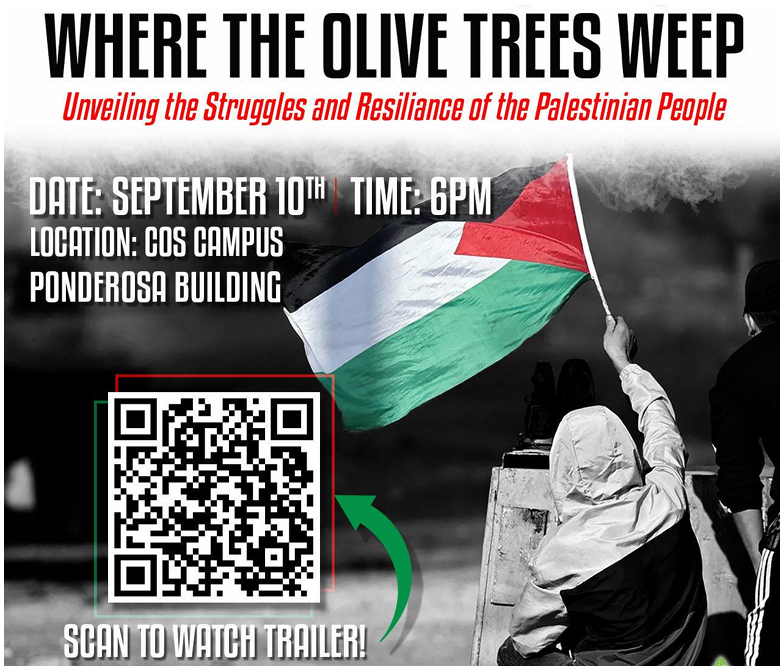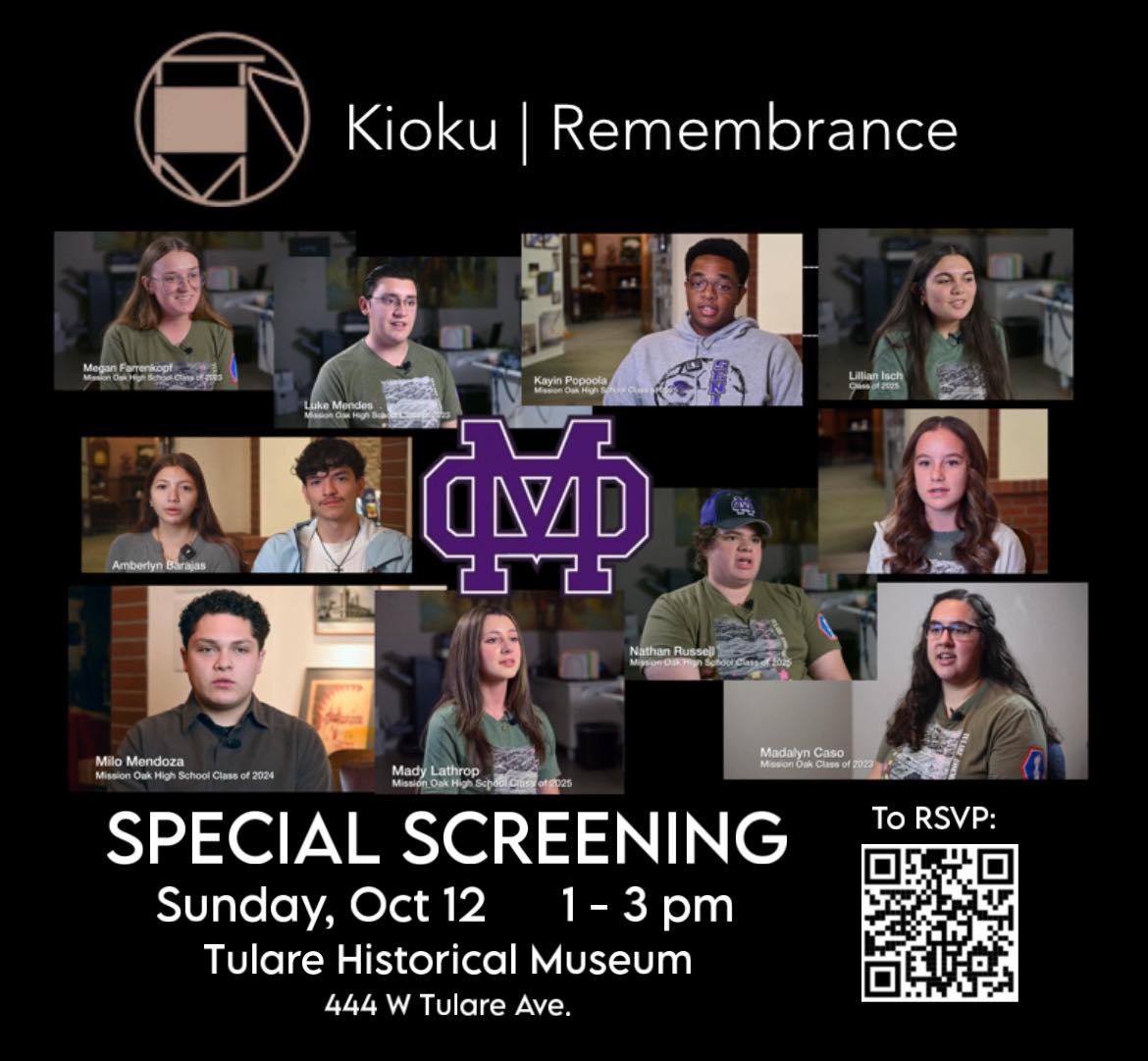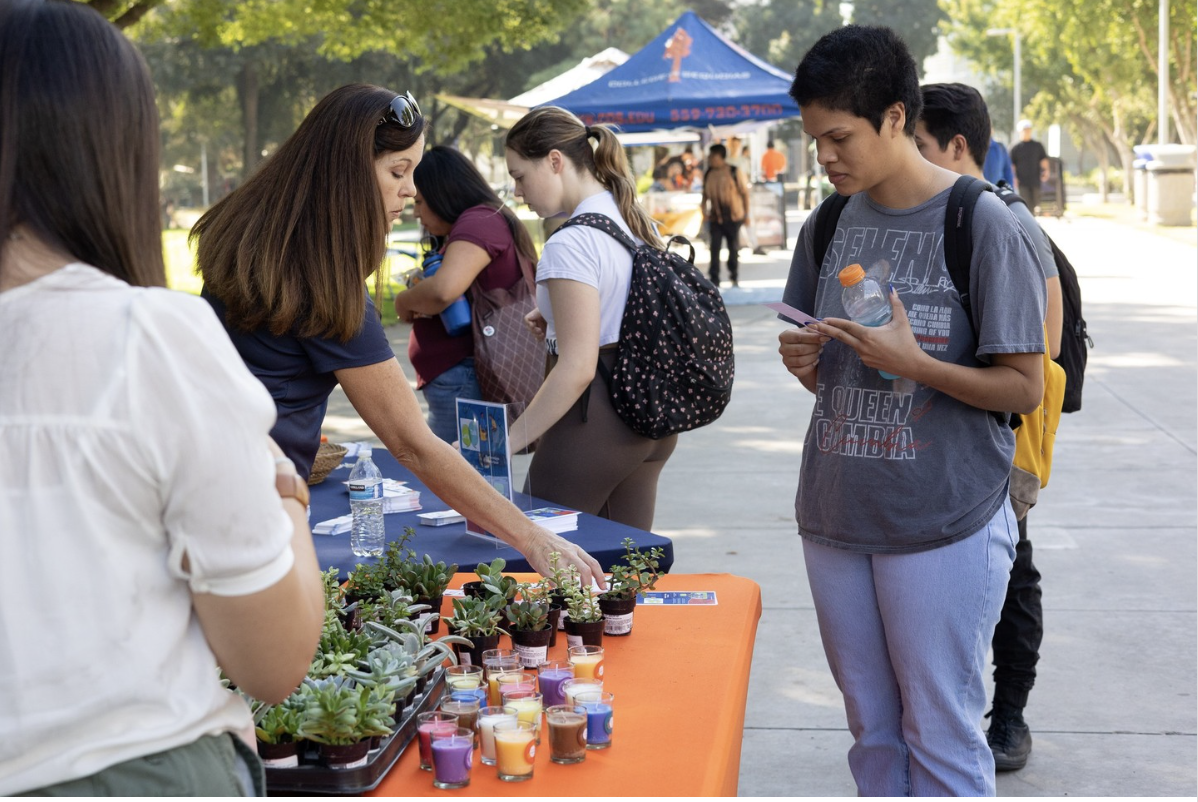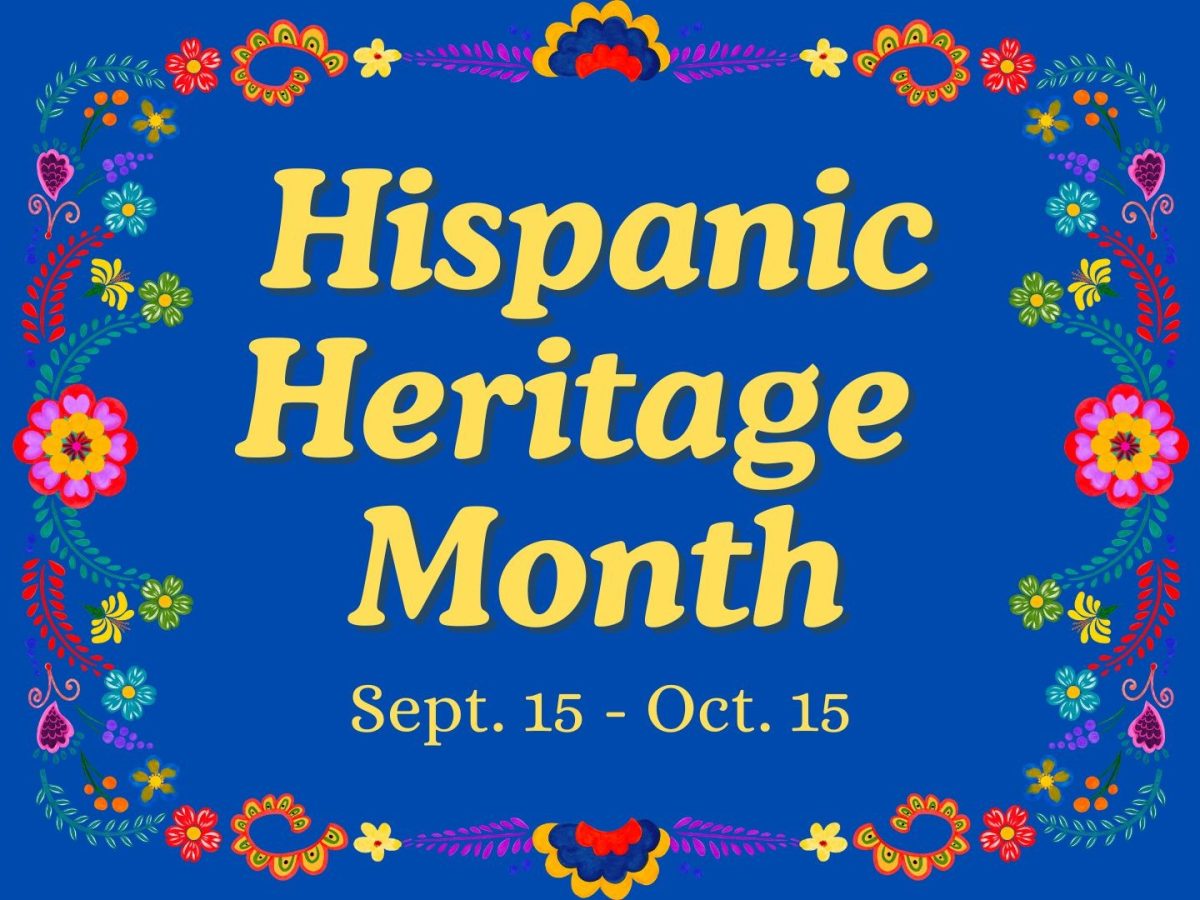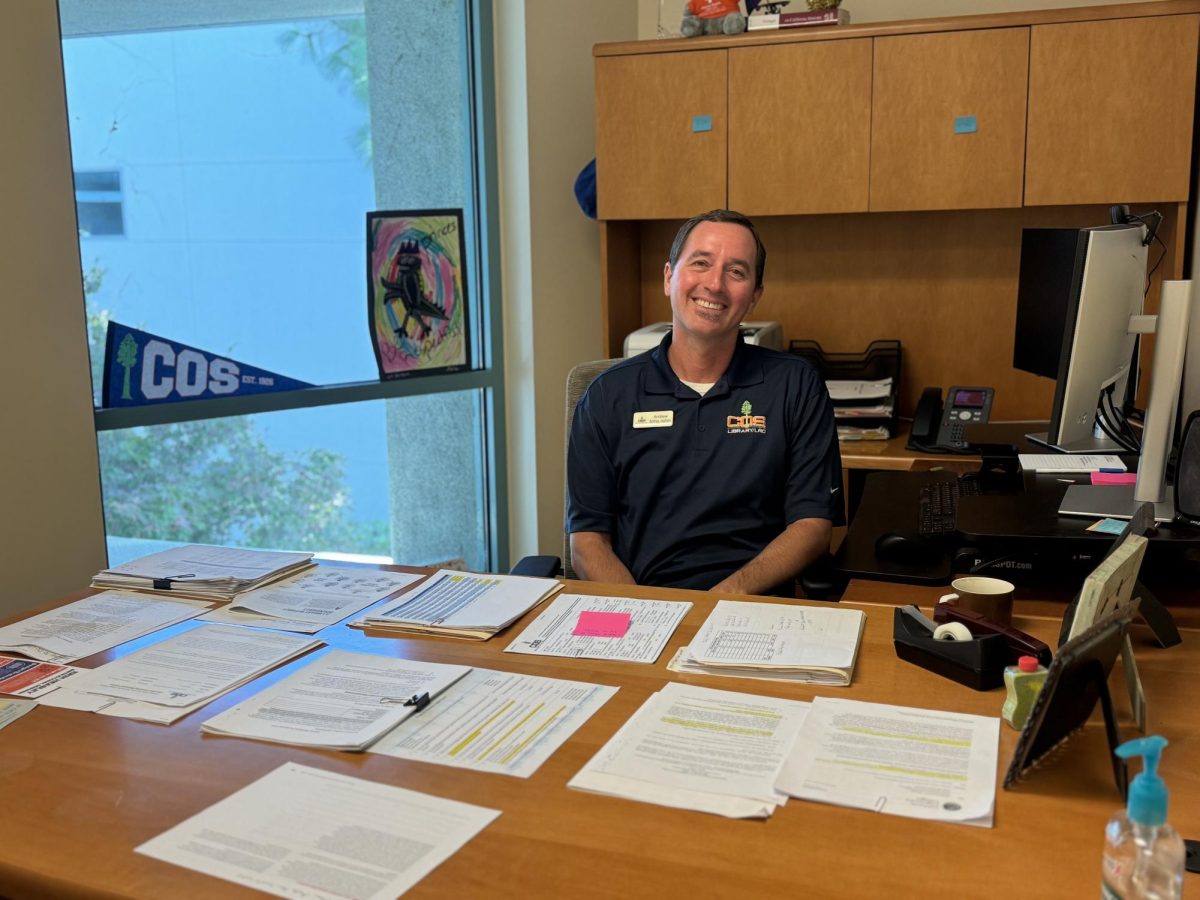With interest and urgency toward activism growing in student life, professor of ethnic studies Octavio Barajas was met by a student, Taylor, resolute to do more to bring attention to the struggles of Palestinians both in our community and around the world. Octavio, Taylor, fellow faculty, and members of our community met on Wednesday, September 5th to discuss the screening of a documentary titled “Where the Olive Trees Weep.”
Awareness and concern for the lives of Palestinians has erupted on campus and throughout the community since October of 2023. In December of 2023, just months after the events of October 7th, students led a demonstration in the free speech area of the Visalia campus to raise awareness of Israeli apartheid which has restricted the rights and freedoms of Palestinian people for decades. Many Arab students have carried the energy of that demonstration to their daily activism in protest and on social media.
The diversity of student demographics speaking out about the topic has grown exponentially since October 7th. The MEChA club, representing Chicano and Chicano American students and history, has acknowledged the issue. In their March for Cesar Chavez, the Mecha club’s emcee called out to the community to stand with their fellow oppressed minorities.
On the context of the documentary, Professor Barajas stated “[i]t is important to mention that even though the documentary was released this year the footage for the documentary was filmed two years ago. The documentary aims to humanize the Palestinian people. Unfortunately, there is a lot of misinformation about what has been happening to Palestinians.” Professor Barajas acknowledges that the struggles of Palestinians are frequently misrepresented, especially with the potential for misinformation that comes with social media. He says, “[t]his should give viewers insight on how far back this goes beyond the recent unspeakable violence taking place in Gaza that filters through social media platforms today.”
At the end of the documentary was a 20-minute breakout discussion–Octavio says “[t]he goal is to allow everyone in the audience to connect with someone before they leave[…]and then if time permits, it will be open for a traditional Q&A.” “[…]viewers should consider that these stories may also be the stories of their neighbors and hopefully it moves the viewer to want to learn more about what is happening and ask further questions” Octavio empathizes.
The screening was a huge step forward as both students and faculty are making efforts to foster an environment of critical thinking and consciousness toward worldly issues.

